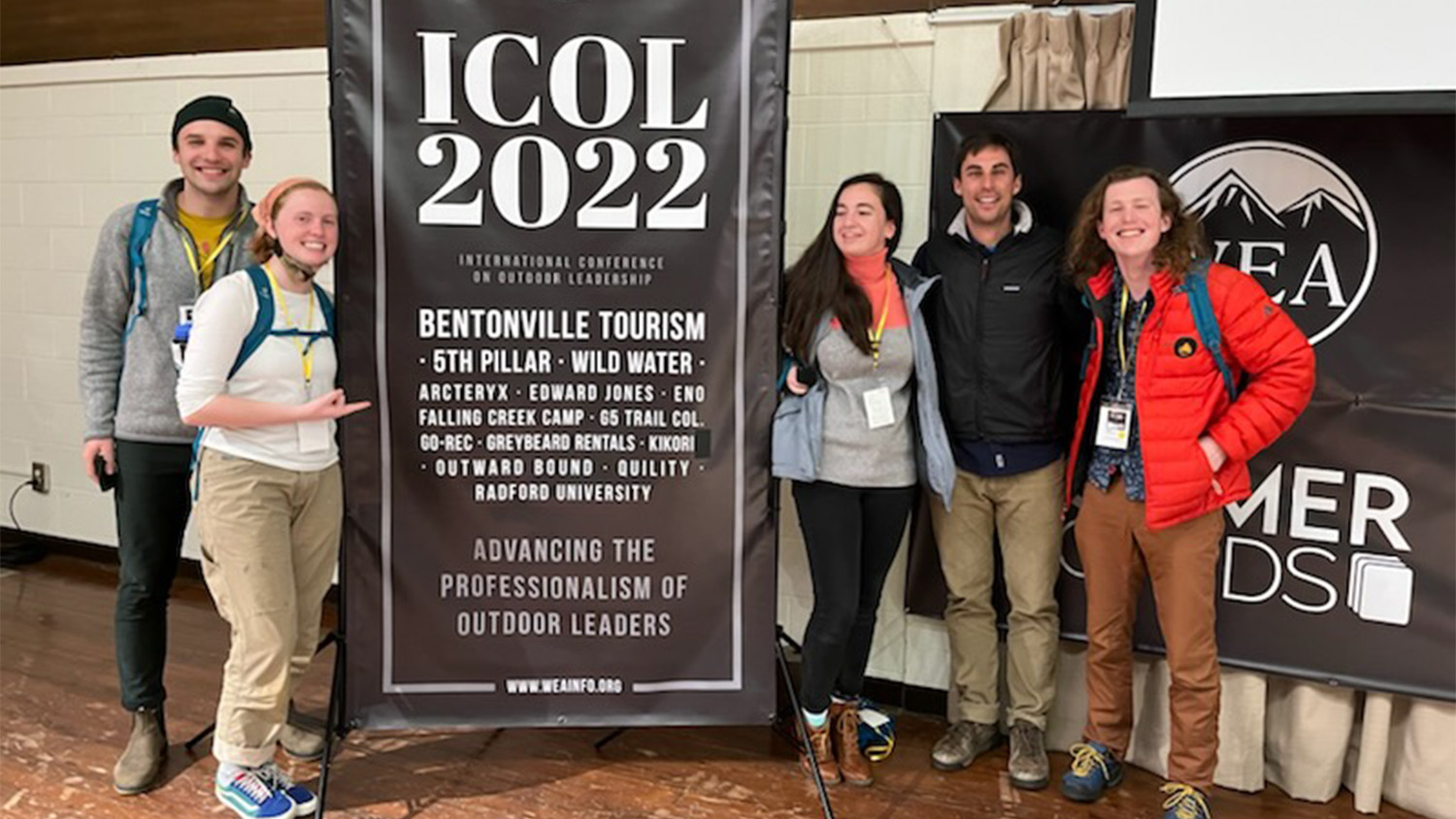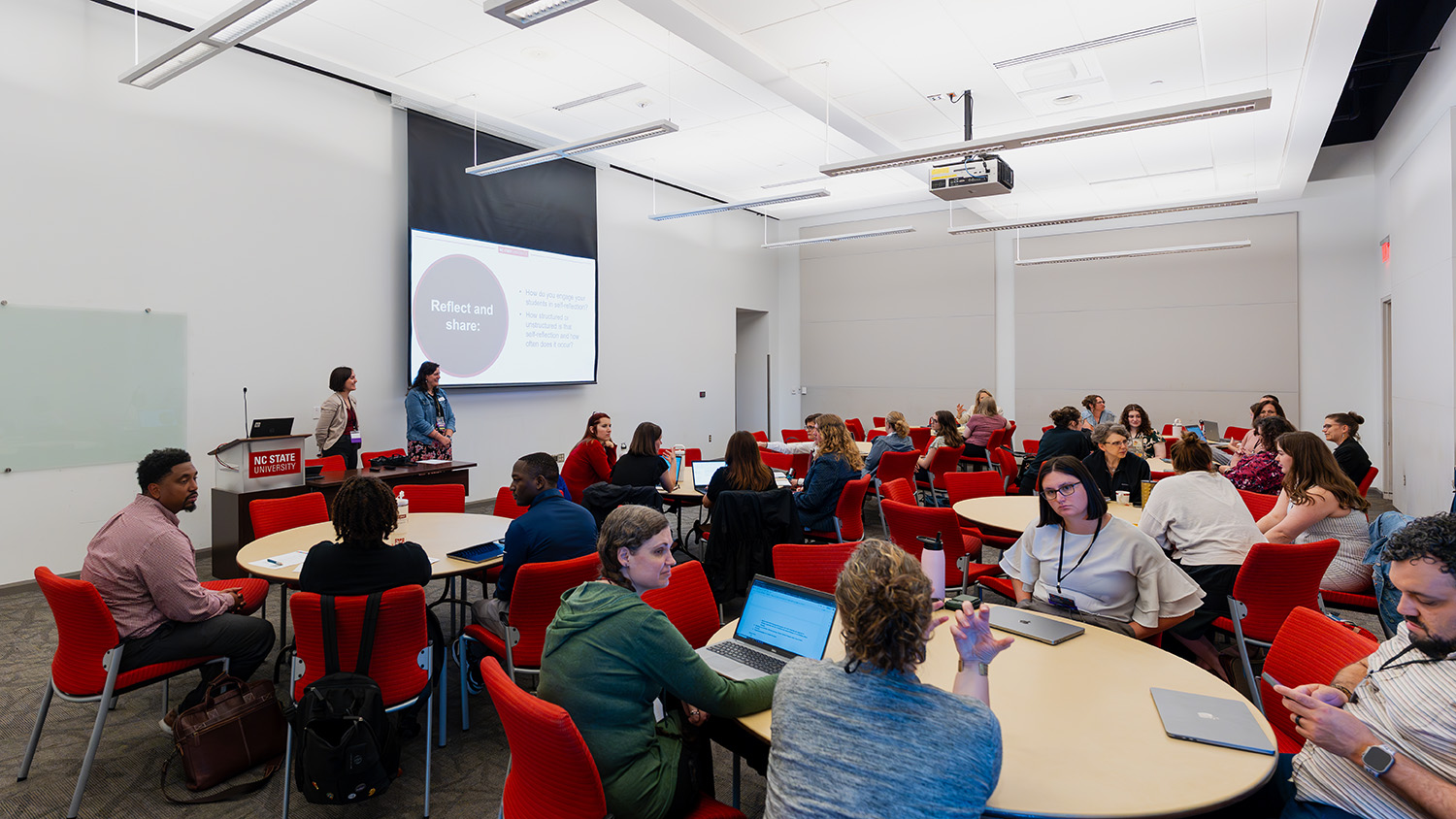Schneider Presents at WEA International Conference on Outdoor Leadership
Health and Exercise Studies faculty member Scott Schneider was driven to reflect on the world of outdoor leadership's most important topics after attending the WEA International Conference on Outdoor Leadership.

From Feb. 9-11, Health and Exercise Studies (HES) faculty member Scott Schneider attended the Wilderness Education Association’s International Conference on Outdoor Leadership in Black Mountain, N.C. The conference is designed to deliver an inspired, practical and motivating learning experience for those in attendance, with the theme of this year’s conference being “Advancing the Professionalism of Outdoor Leaders.”
Coinciding with this theme, one of the WEA’s most recent objectives has been to establish a curriculum for “soft skills” used by outdoor leaders and educators. Soft skills in the world of outdoor leadership include, but are not limited to, skills such as risk management, judgment and decision making, trip planning and logistics, environmental integration, and leadership.
“There are already organizations who certify technical skills like paddling, climbing and ropes course techniques, but there is no one standardizing the soft skills that are paired with those technical skills,” says Schneider. “For example, I can be a skilled paddler, but as an educator, that doesn’t matter if I don’t know how to plan a paddling trip to take 10 people down a river, or if I am unable to assess people’s ability.”
Schneider, who also serves as a board member for the WEA, has played a large role in the creation of a certification process for this curriculum. During the conference, he gave a presentation primarily focused on this process, with hopes to educate the other schools in attendance who may want to apply it to their programs.
“The idea is that these rubrics and assessments are being created so that students can demonstrate these skills and be assessed on them. Ideally, students can then acquire these credentials and certifications, and with this newly implemented curriculum, ‘Certified WEA Outdoor Leader’ will carry more substantial weight in the field of outdoor leadership.”
Moving forward, Schneider stated that there are a number of steps that need to be taken before this certification process can be executed properly.
“On a programmatic level here in HES, the next step would be meeting with my colleagues and creating a plan for our educators to complete the necessary training required to become certified. Once that process is complete, we can begin working towards offering these programs here at NC State.”
“From a WEA board member lens, we need to continue partnering with other universities and organizations to implement these programs so that these outdoor leaders are trained properly. While these programs were historically made more for universities, we’re now adapting it to serve other populations and still create these standards for leaders of outdoor experiences.”
Schneider also had the opportunity to bring four HES students along with him to the International Conference on Outdoor Leadership. When asked what key takeaways he wanted his students to gain from the experience, diversity, equity and inclusion were at the top of the list. For this conference, the WEA featured four women keynote speakers in order to ensure that DEI was a true focal point.
“In the current state of the outdoor industry, we’re all reflecting on how it’s a historically white male-dominated space and asking ourselves ‘How do we create space, conversation and policy to make the outdoors for everyone?’ In this conference, I think having those four really strong female voices made everyone continue their reflection and conversation on how to create space for everyone in this industry. For me, I felt like I got to reflect on how I can continue to serve the entire NC State population and continue improving as an educator.”
Schneider concluded our conversation by expressing how great it felt to attend an in-person conference again, after not attending any for the past two years due to COVID-19.
“It was just nice to go to a conference in-person. Even the students were like ‘It was so nice to not be on a Zoom screen.’ I left feeling an appreciation and gratitude for the opportunity and being able to go. I feel reinvigorated and just psyched to continue getting better at my craft.”


